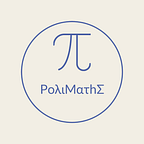Here is a seemingly simple question: what is a vector? Most people with a high-school level of mathematics or physics will answer say ‘it’s a quantity which has a direction and a magnitude’. They will compare them to scalars, which have only a magnitude, but no direction.
If you ask someone from computer science to give you a definition of a vector, they might respond that it’s similar to a list — a quantity which has coordinates, similar to an n-tuple.
Guess what? Both of these definitions are wrong! The ‘real’ definition of a vector is a lot more abstract, but a lot more liberating. The first time I heard the real definition of a vector, I was super excited by the amount of freedom the definition allows. I want to share some of my excitement with you!
In mathematics, it’s frequent for definitions to revolve around an exemplary special-case of the definition. For vectors, the traditional pointed arrows which many are familiar with can be interpreted as the exemplary special-case, but NOT the only possibility.
Before I give you the definition of a vector, let’s try to categorise some of the properties of ‘vectors’. Once again, characterising familiar concepts in terms of their properties and using those properties as a definition is a common procedure in maths.
Review of 2D Arrow Vectors
The way that I first encountered ‘vectors’ was as a quantity having a magnitude and direction. We can represent…
